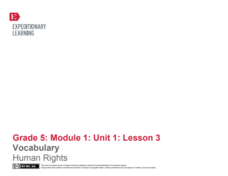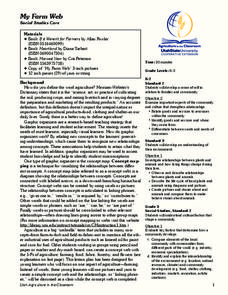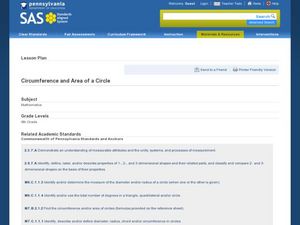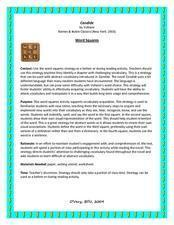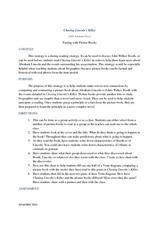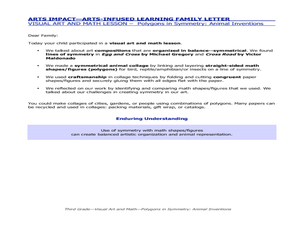EngageNY
Vocabulary: Human Rights
Your class continues to explore the history of the Universal Declaration of Human Rights. In addition to learning about the background of this text, learners work on the skill of identifying and understanding key academic vocabulary....
Positively Autism
Spring Break Social Skill Story
Changes in routines can prove to be difficult for all kids, but especially for autistic learners. Here's a story designed to prepare kids for the change in schedule brought on by spring break.
EduGAINs
Introduction to the Great Depression—Canadian and World Studies
Ah, the classic business cycle model: recession, depression, recovery, prosperity. And then there was the Great Depression. Groups investigate the economic conditions that led to and social movements of the 1920s that great out of the...
NOAA
A Quest for Anomalies
Sometimes scientists learn more from unexpected findings than from routine analysis! Junior oceanographers dive deep to explore hydrothermal vent communities in the fourth lesson in a series of five. Scholars examine data and look for...
Curated OER
Who Participates? Identifying Diversity
Learners listen to sound bite of producer/director Nick Giannopoulos, and discuss issue of stereotypical portrayals of cultural groups presented in the media. Students then use questionnaires and view popular television shows to observe...
Curated OER
Atomic structure - Historical background
Students use the Internet to research the development of the discovery of the atom. They create an essay, PowerPoint presentation and a story line on the subject.
Curated OER
My Farm Web
Students examine the role of agriculture in everyday life. In this agriculture lesson plan, students read books such as Harvest Year and identify products which from from the farm. Students fill in a word web using the knowledge they...
Curated OER
Discovering New Species
Young scholars identify animals observed by Lewis and Clark while evaluating the animal's habitat and describing the animal's behavior. Students construct a food web mobile to illustrate the animal's position in the food web in the 19th...
Curated OER
Canadian Olympic Fashion
Students, in groups, research a Canadian Olympic sport and design a uniform for a Canadian Olympic team.
Curated OER
Political Cartoons and Dr. Seuss
Students study political cartoons by Dr. Seuss. They create their own political cartoons on a current event.
Curated OER
Finding the Circumference and Area of a Circle
Sixth graders discover what circumference is. In this measurement lesson, 6th graders identify the radius and diameter of different circles. Students discover how to find the area of a circle using the radius and diameter.
Curated OER
How Alzheimer's Affects the Brain
Students study how Alzheimer's affects different parts of the brain, sketch a healthy neuron and its parts, and diagram brain changes during the early and late stages of Alzheimer's.
Curated OER
South Caro-angular
Learners classify and measure angles. In this angular lesson, students measure, contruct, and classify angles. They identify angles as acute, right, obtuse, and straight.
Curated OER
Polynomials and Factoring
Students classify, add, subtract, and factor polynomials. In this polynomials lesson, students classify polynomials by creating their own system. During a discussion, the class decides on a common system. They add and subtract...
Curated OER
We Write to Read
Students are introduced to cursive handwriting as a symbolic language system. In this cursive handwriting lesson plan, students apply the Peterson sequence approach and practice gross motor patterning and action word rhythm. Students...
Curated OER
Candide: Word Squares
Readers of Voltaire’s satire create a word square for vocabulary drawn from Candide. The first box contains the word, the second a picture or illustration of the word. The definition is written in the third box, and learners write a...
Curated OER
Modeling Integer Multiplication
Pupils multiply positive and negative integers. They represent word expressions with both positive and negative integers and then multiply them. They also create multiplication problems to solve as a class. They create a rhyme, a story,...
Curated OER
Fractions
Students determine that a fraction is a part of a whole or part of a group. They write and read fractions and solve various fraction problems. They create their own fraction problem using colored candies for their classmate to solve.
Curated OER
Connotation in Propaganda
High schoolers assess persuasive techniques in propaganda. They identify and critique rhetorical devices in primary source documents (sources are not specified, but links to sites that contain various documents are included). Groups make...
Curated OER
Now That's News To Me!
Students observe how newspapers help to build a sense of community. They identify the important events and people within their school community and create a newspaper page/section. They choose photographs or clippings to use on their...
Curated OER
Match Shapes in Compositions
Third graders draw shapes that are congruent with each other and identify other congruent shapes. In this congruency lesson plan, 3rd graders also apply specific colors from the color wheel in their shapes.
Curated OER
Pairing with Picture Books: Chasing Lincoln's Killer
Readers of Chasing Lincoln’s Killer, James L Swanson’s young adult novel, use a Venn diagram to compare information about Abraham Lincoln and the events surrounding his assassination, with the images and information presented in picture...
Curated OER
Polygons in Symmetry: Animal Inventions
Fourth graders use polygons to create animal figures with symmetry. In this polygons and symmetry lesson, 4th graders create a symmetrical animal collage by cutting and gluing geometric shapes and figures from math activities.
Curated OER
Symmetry with Shapes
Students analyze a symmetrical stamp design with an equal balance of light and dark to create a pattern in succession. In this shape design lesson, students review concepts of sign, symbol and language across cultures. Students analyze...


